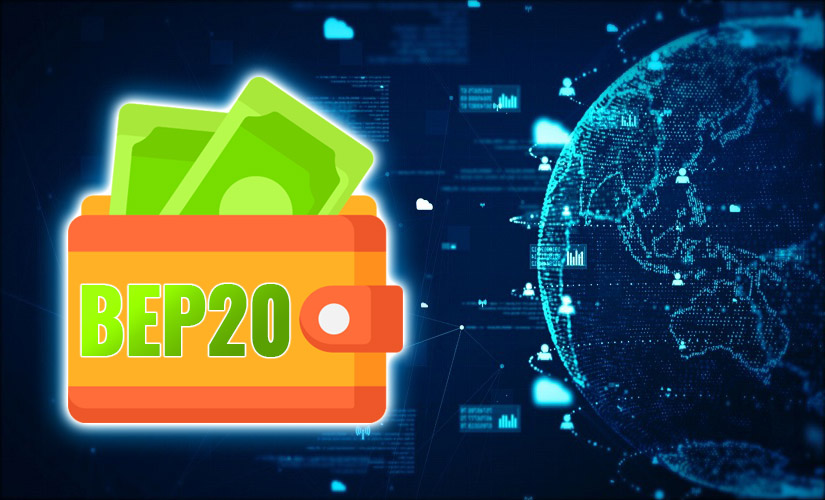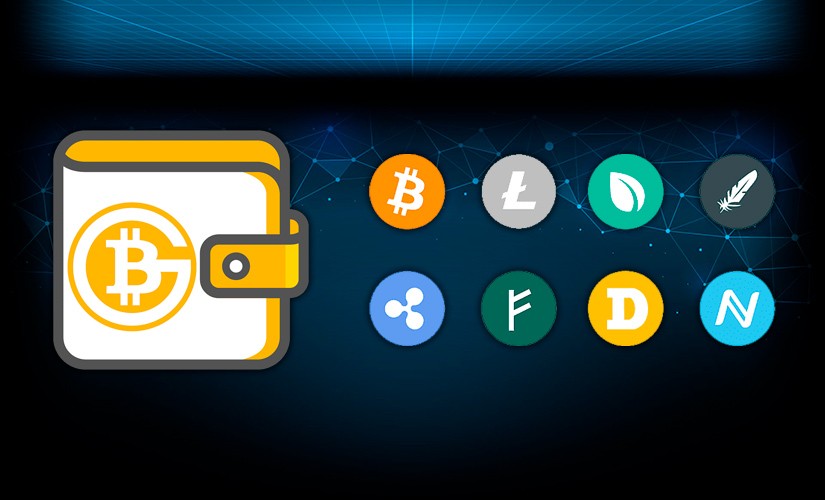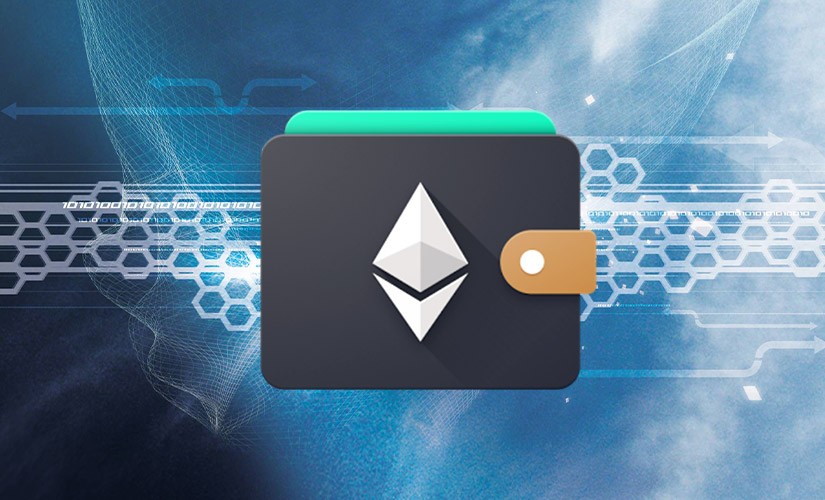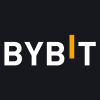As of 2024, there are 5 categories of vaults for saving digital assets. Mobile wallets are among the most popular. Their demand is explained by increased security and convenience of use. And since demand gives birth to supply, some developers of virtual products intentionally create crypto wallets for Android.
It is difficult to choose a mobile storage among dozens of competitors. But to do this will help a list of the most popular and high-quality software (software).
Top best cryptocurrency wallets on Android in 2024
Vaults are selected from the editorial team’s rating:
MetaMask
This cryptocurrency wallet launched in 2016 as a browser extension. But by 2024, there are also mobile versions for Android and iOS. The creator of MetaMask is a company called ConsenSys. It employs more than 500 people from the corporation’s offices in New York, Washington, D.C., and San Francisco.
The source code of the MetaMask cryptocurrency vault is open. At the same time, the wallet provides customers with a non-custodial method of saving private keys. This fact means that only users have access to them and seed phrases.
MetaMask allows clients to work with decentralized applications in different blockchains. Predominantly, the cryptocurrency wallet supports dApps on the Ethereum network. But by 2024, the functionality of the software is extended.
5020 $
bonus for new users!
ByBit provides convenient and safe conditions for cryptocurrency trading, offers low commissions, high level of liquidity and modern tools for market analysis. It supports spot and leveraged trading, and helps beginners and professional traders with an intuitive interface and tutorials.
Earn a 100 $ bonus
for new users!
The largest crypto exchange where you can quickly and safely start your journey in the world of cryptocurrencies. The platform offers hundreds of popular assets, low commissions and advanced tools for trading and investing. Easy registration, high speed of transactions and reliable protection of funds make Binance a great choice for traders of any level!
As of June 21, 2022, the mobile program supports 37 blockchains. In total, wallet users can store 37 coins and tens of thousands of tokens. The latter can be added through the software interface.
MetaMask has no developer-integrated commissions. Clients only need to pay network fees for transactions. The amount of commissions depends on the used cryptocurrency.
MetaMask has 2 additional services built in:
- A tool for making swap exchanges within the vault.
- A service for buying cryptocurrencies for fiat money. The function is realized with the help of MetaMask’s strategic partners – Wyre and Transak payment systems.
CoinPayments Wallet
This is one of the best crypto wallets for Android in Russian. The vault was launched in 2013. Its main developers are programmers Alex Alexandrov and Jason Butcher. The team consists of 27 specialists.
The program code of CoinPayments is open and posted on GitHub. The wallet is custodial software. Users do not have access to cid phrases and private keys. However, customers’ trust in CoinPayments is built on the cryptocurrency wallet’s long history of operation.
At first, the wallet was designed only to save virtual assets. But by 2024, the creators expanded the functionality of the program.
The wallet does not support specific networks. Customers can store more than 2,280 different cryptocurrencies. It is also available to them to add tokens. To do this, you need to submit an application to the developers.
The cryptocurrency store does not have commissions. But CoinPayments provides online store owners with a payment processor. For its use, merchant fees of 0.5% of each transaction are charged.
CoinPayments has additional services:
- Payment Processor.
- Automatic exchanger for converting digital assets between addresses.
- A safe deposit box with increased investment protection.
- Services for working with fiat currencies.
ZenGo.
This cryptocurrency wallet appeared in 2019. The creator of the mobile software is the KZen Network Corporation. Participants of the cryptocurrency community know that the company collected $4 million in investments to develop the vault.
ZenGo has an open source code. The mobile software is a custodial crypto vault. For this reason, some investors are afraid to use ZenGo. But customers can check the reliability of the code and the absence of malicious algorithms on their own. Also, the work of KZen Network is monitored by Israeli regulators and the country’s laws.
ZenGo only allows users to store cryptocurrencies. For example, investors do not have access to the NFT market and the DeFi sector.
ZenGo lacks support for specific digital chains. That said, users have access to storing 78 cryptoassets. Adding new tokens to the list of supported tokens is not allowed.
Fees for using the proprietary cryptocurrency exchanger are integrated into the storage. The fee ranges from 2% to 4% and depends on the converted digital assets. KZen Network does not charge any other fees.
There are 2 auxiliary services inside the software (the wallet creators did not report the development of new additional tools):
- A proprietary cryptocurrency converter.
- Service for purchasing coins and tokens for fiat.
Coinbase Wallet
This cryptocurrency wallet was created by Coinbase Global, Inc. in 2012. The vault is the flagship product of the corporation and a competitor of the popular Blockchain Wallet software. The foundation of the project was laid by 3 cryptocurrency enthusiasts:
- Fred Ehrsam
- Brian Armstrong
- Ben Reeves.
At first, the cryptocurrency wallet was called Toshi. But in 2018, the developers renamed it to Coinbase.
The source code of Coinbase is closed. But the program for Android cell phones is non-custodial. It allows you to create a wallet for cryptocurrency on Android in Russian, where the private key along with the cid-phrase is stored by the client. With all this, the developer company has a good reputation in the market of virtual assets. For these reasons, customers can safely use Coinbase.
At first, Coinbase was focused only on storing cryptocurrency assets. But by 2024, the developers have greatly expanded the functionality of the digital product.
The cryptocurrency storage allows customers to work with the Ethereum blockchain. At the same time, more than 4 thousand assets are available for users to store.
There are no commissions built into the mobile program. It is free to download and use. Customers only have to pay network commissions for making cryptocurrency transfers.
Coinbase presents 2 additional tools:
- Ethereum dApps browser to interact with decentralized exchanges and other applications.
- A protocol for working with non-mutually exchangeable tokens.
Trustee Wallet
This vault launched in the spring of 2019. The developer of the wallet is the cryptocurrency company Trustee Global. The founder of the corporation is Vadim Grusha. The number of employees of the company remains unknown.
Trustee has an Open Source status. The source code of the software is published on the Internet. At the same time, the program is among non-custodial cryptocurrency wallets. Using Trustee is safe for customers.
The vault was initially focused on a wide target audience. Before the release, the development team integrated Smart Swap feature into the software to enable fast internal exchanges through partner Changelly.
Trustee developers have provided built-in fees. When buying digital assets for fiduciary currencies through partner counterparties, the cryptocurrency wallet charges 1% of transactions. At the same time, the intermediaries themselves take commissions from 3.5%.
Trustee integrates 3 additional services:
- Smart Swap (an application for selecting favorable offers to buy and exchange cryptocurrencies through partners).
- Service for interaction with NFT.
- WalletConnect (protocol for connecting crypto wallet to dApps).
SafePal S1.
Before choosing a cryptocurrency wallet for Android, it is worth considering this hardware storage. It is released in 2019. To work with it, SafePal Corporation created a branded application for mobile operating systems (OS) Android and iOS. But in 2020, the company introduced a feature in the software to register program wallets on phones.
The code of the SafePal program is open. The developers regularly publish updated source code in the GitHub online repository. Also, the mobile cryptocurrency wallet is non-custodial.
At first, the digital vault was intended only for safe saving of virtual assets using physical devices. But by 2024, further development created a software wallet and updated its functionality.
On June 21, 2022 SafePal S1 supports 33 chains and more than 30 thousand cryptocurrency assets. Additionally, users can add new altcoins.
The developers of SafePal S1 earn money on the sale of safe cryptocurrency devices. For this reason, the creators of the vault did not provide any transaction fees in the program wallet.
The SafePal S1 mobile SafePal S1 has 3 auxiliary tools:
- SafePal Earn yield aggregator ( steaking, farming cryptocurrencies and investing in liquidity pools is available).
- Swap service for fast crosschain exchanges within the mobile wallet.
- Browser dApps.
Guarda Wallet
This cryptocurrency wallet was released in 2017 by crypto-enthusiast Paul Sokolov. At first, the program was compatible only with desktop operating systems – Windows, Linux and macOS. Later, Paul Sokolov’s development team released versions of the software for Android and iOS (as of 2024, the exact date of their release remains unknown). However, they do not allow you to create a cryptocurrency wallet in Russian on your phone. There is no support for this language in the mobile versions.
Guarda is an Open Source type software. The cryptocurrency wallet is non-custodial. Private keys and mnemonic phrases are stored on the client side.
At first, only ETH could be stored in Guarda. But by 2024, the developers greatly expanded the list of supported cryptoassets. The creators updated the functionality as well.
As of June 21, 2022, Guarda supports more than 50 digital networks. At the same time, users of the cryptocurrency wallet are available to save more than 10 thousand virtual assets.
The Guarda mobile app is free to download and use. There are no built-in commissions.
There are 6 auxiliary services integrated into the Guarda program. They allow you to:
- Buy crypto-assets for fiduciary currencies.
- Participate in the steaking of digital coins.
- Take cryptocurrency loans.
- Earn through an affiliate program.
- Create tokens and promote them.
- Exchange cryptocurrencies.
ShapeShift
The cryptocurrency wallet was created by the eponymous company ShapeShift in 2016. The idea of developing the storage belongs to the enthusiast Eric Voorhees. However, the main product of the corporation is a decentralized exchange with a similar name.
The program code of ShapeShift is open. The company has posted all resources in the online repository GitHub. As the cryptocurrency wallet for Android is being developed, the creators update the sources. Also, the vault is included in the category of non-custodial software.
In 2016, the ShapeShift product ecosystem launched with a minimal number of basic options. After 6 years, the creators of the project have greatly refined the functionality. For example, new investment tools have appeared.
As of June 21, 2022, the exact number of chains supported by ShapeShift is unknown. But participants of the cryptocommunity know the number of available altcoins – more than 5 thousand.
The developers have introduced in ShapeShift commissions for using the proprietary exchange service. The amount of fees varies. However, keeping the FOX exchange token on the wallet allows users to exchange without commissions.
ShapeShift cryptocurrency wallet is equipped with 5 additional investment tools:
- Virtual Asset Exchanger.
- A service for buying and selling popular cryptocurrencies for fiat.
- Staking.
- Profitable farming.
- Cryptocurrency lending service.
MyEtherWallet
This vault was released in 2015. It is one of the best mobile crypto wallets. It was created by developers Kosale Kemachandre and Taylor Monahan. At first, the project was a hobby of the programmers. But later it became a cryptocurrency corporation with a large staff.
The source code of MyEtherWallet is open. The developers published it on the project’s website and the GitHub platform. At the same time, MEW is a non-custodial cryptocurrency wallet.
At first, MyEtherWallet allowed to store only ethers and worked through desktop browsers. Versions for mobile OS were released a few years later (as of June 2022, the software release date for Android and iOS is unknown). In the meantime, the functionality of the wallet has expanded greatly.
As of June 21, 2022, MyEtherWallet works with 3 crypto networks – Ethereum, BSC and Polygon. MEW clients are able to operate with all tokens of 3 relevant protocols – ERC-20, BEP-20, Polygon. The number of available cryptocurrencies is unknown.
MEW developers have integrated commissions into the mobile software. The vault charges fees for exchanging BTC for RenBTC. There are no other commissions from MyEtherWallet developers in the program.
MEW customers have access to 4 investment tools:
- Staking.
- The function of purchasing crypto-assets for cash.
- A proprietary digital asset converter.
- Service for working with Ethereum blockchain dApps.
Electrum Wallet
Closes the top wallets for cryptocurrency on Android program Electrum. Its debut version was launched in late 2011. The wallet was created by German developer and specialist in neural networks Thomas Fottlin and his anonymous team. By the beginning of 2012, the program became popular among cryptocurrency users because of its respectability and almost no competition.
The program code of Electrum is open. It is published on the project’s website. In 2015, Thomas Fottglin announced the authorization of third-party software improvements. For this reason, for 2024 part of the updates are implemented by cryptoenthusiasts. Also Electrum is a non-custodial wallet. Private key downloads are available through the mobile program interface.
At first, Electrum was only desktop software. Later a mobile software for Android was released (launch date unknown). At the same time, the original Electrum is designed to work with Bitcoin. As of June 21, 2022, the developers do not plan to increase the number of supported cryptocurrencies.
Electrum has no built-in commissions. Users of the cryptocurrency wallet pay only the fees of the Bitcoin network. At the same time, the vault is equipped with an algorithm to calculate the recommended amount of commissions for fast BTC transactions.
Electrum customers have access to 3 additional tools:
- Lightning Network (a second-level Bitcoin chain protocol for making fast and cheap transfers through payment channels).
- Two-factor authentication (implemented in a separate type of Electrum accounts with paid service).
- Service for integration with third-party plugins.
Features of cryptocurrency wallets on Android
Mobile storages allow you to conveniently operate digital assets. At the same time, they are in many ways similar to desktop cryptocurrency wallets. Mobile software clients are downloaded and installed on users’ smartphones. At the same time, the main information is usually stored on the devices (depends on the software):
- Private keys
- Transaction history
- Address balances and other information.
The main feature of crypto wallets for Android is the use of mobile cameras. They allow customers to scan QR codes to make quick digital payments. For this reason, mobile cryptocurrency vaults are better suited for regular spending.
Another feature of Android wallets is mobility. For 2024, users almost always keep their smartphones with them. If necessary, this allows you to conduct urgent transactions and check the balance of cryptocurrency numbers, “without getting out of bed”.
Pros and cons of cryptocurrency wallet on the phone
Mobile storage of virtual assets has an equal number of advantages and disadvantages. Here are the main pros and cons of such wallets.
| ADVANTAGES | DISADVANTAGES |
|---|---|
| Portability. Wallets on phones allow customers to conveniently operate cryptocurrencies outside the home without a personal computer. | Average level of security. Mobile cryptocurrency wallets are more reliable than browser-based ones. However, their security “does not reach” the level of hardware storages. |
| Convenience. Clients are often more comfortable using mobile vaults than other cryptocurrency wallets. This is due to the compactness of interfaces on phones. | Presence of fake applications. Attackers often fake cryptocurrency programs and publish them in the Google Play store. Using fraudulent software guarantees loss of savings. |
| Uncustodiality. Many cryptocurrencies on smartphones allow customers to manage private keys. | The possibility of phone breakage or loss. In the absence of a cid-phrase, wallet recovery will be unrealistic. |
| Simplicity. The interface of many wallets on phones is intuitive for beginners. | Android’s imperfection. This OS is less secure than iOS. On average, Android smartphones are infected with malware more often. This increases the risk of investment theft. |
How a mobile cryptocurrency wallet works
Many Android programs for saving altcoins partially function on the model of “light” vaults. Customers don’t need to download blockchains to their smartphones. Cryptocurrency programs often only apply subsets of transactions. Other information is stored on developers’ servers and is rarely used:
- The complete histories of records on the networks.
- Characteristics of blockchains.
- Lists of trusted virtual chain nodes and other information.
Transaction subsets are often sufficient for stable cryptocurrency networks for clients. Other information is rarely used by vaults. However, users have to rely on unknown trusted nodes when doing so.
How to choose a mobile wallet
Different vaults are equipped with different features and have their own characteristics. For this reason, you should choose a cryptocurrency wallet for Android according to 9 criteria:
- Security level
- Type of key storage
- Program code status
- Level of anonymity
- Number of supported cryptocurrencies
- Availability of integrated exchanger
- HD function
- Russian localization
- Interface simplicity.
Security
Usually participants of cryptocurrency networks choose decentralized wallets on smartphones. They have an increased level of security. Such storages often have authorization functions with PIN and biometrics (fingerprint and/or face).
Using centralized software is not recommended. They are more vulnerable to hacker attacks. Cryptographic encryption of data does not save from information leakage from the developers’ servers. Such wallets provide for registration by cell phone number and/or e-mail address. This reduces anonymity.
Non-custodiality
Users should have access to private key management. This increases the reliability of cryptocurrency storage. Such a function is provided only in non-custodial wallets. Their developers do not store private crypto keys on their servers. For this reason, the hacking of databases of non-custodial wallets by attackers rarely causes financial damage to users.
Also, the private key management feature usually allows customers to change vaults. To do this, you need to carry out the procedure of importing the created cryptocurrency wallet into another application.
Open Source
When choosing a cryptocurrency wallet, you need to find out the status of software resources. Vaults for digital assets of the Open Source type are safer than closed-code software. This is due to the possibility of providing assistance to developers. Some enthusiasts review the source codes of the used cryptocurrency wallets and search for vulnerabilities. When technical flaws are found, users report them to the developers. Creators of cryptocurrencies often reward such enthusiasts financially.
At the same time, the Open Source status allows wallet users to conduct audits of source codes. Such audits give customers the opportunity to evaluate the security of the software they choose.
Anonymity
A high level of data privacy is a basic criterion of choice for many crypto users. Usually, anonymous wallets have the following characteristics:
- Decentralized.
- No requirement to enter personal information.
- Non-custodiality.
- Absence of an account system.
Multicurrency
Many investors collect an investment portfolio of several digital assets. It is more convenient to store purchased coins and tokens in one wallet. For this reason, it is important to choose a secure multicurrency software. Such software will allow you to control your entire investment portfolio in one application.
Integrated exchanger
An integrated cryptocurrency converter should be considered as an additional option. Such services allow you to exchange virtual assets directly inside wallets. This is convenient, because you do not need to use third-party platforms, such as digital exchanges, to convert available cryptocurrencies. However, the presence of a built-in exchanger is not the main criterion for choosing a storage.
HD feature
For 2024, there are hierarchical-deterministic vaults. Members of the cryptocurrency community often refer to them as HD wallets. Such mobile applications allow customers to use multiple addresses for the same coins at once. Special algorithms create numbers based on seed phrases to store specific coins.
Mobile wallets for cryptocurrencies with the HD option are considered more anonymous than software without this feature. This is due to the automatic change of addresses with each new transaction. As a result, it becomes difficult for attackers to link several crypto numbers to one owner.
Russian language support
Choosing a cryptocurrency wallet with Russian interface localization is optional, but recommended for beginners. New English terms are often hard for novice investors to understand. For this reason, it is easier for beginners from the Russian Federation to navigate through the sections and functions of mobile applications with Russian language.
Clear interface
Intuitiveness of UI is useful for beginners and experienced users. A clear interface allows you to better navigate in the chosen application from the very beginning. At the same time, using a program with simple navigation will not annoy the client for a long distance.
The interface of the mobile vault should be such that the investor can perform the desired action with the least effort.
How to create a wallet for cryptocurrency on Android
Before using the vault, it needs to be generated (registered). The creation of a decentralized non-custodial wallet is done according to the following algorithm (using the example of the Android application MetaMask):
- Launch Google Play on your smartphone.
- Enter MetaMask in the search bar.
- Press “Search”.
- Open the official MetaMask app page from developer ConsenSys (10 million downloads and a 4.4 star rating).
- Tap on “Install.”
- Click “Open” after downloading the software.
- Tap on “Get Started” in the running application.
- Click on “Create a new wallet”.
- Read the terms and conditions of providing information about using the software and tap on “No, thank you” or “I agree”.
- Make up an access code and specify it twice.
- Enable unlocking of the cryptocurrency wallet by biometrics (the function is available only if there are appropriate sensors on the smartphone).
- Check the box “I understand that MetaMask cannot recover this password for me” and click “Create password”.
- Tap on “Get Started.”
- Read the instructions for the secret recovery phrase and tap “Start”.
- Go through the authorization process.
- Click “View” in the window with the seed phrase.
- Write the 12-word mnemonic on paper or physical digital media without an internet connection.
- Click “Continue.”
- Enter the seed-phrase for confirmation and tap on “Full Backup”.
- Tap “Finish.”
After the twentieth step is completed, the MetaMask cryptocurrency storage interface will be loaded. You don’t need to perform any other actions. MetaMask functions will be available immediately after creating a wallet.
Registration of the centralized custodial storage is done as follows (using the example of the Android program CoinPayments):
- Launch the Google Play store.
- Find CoinPayments through the search bar.
- Go to the official CoinPayments program page from the cryptocurrency corporation CoinPayments Inc.
- Tap on “Install.”
- Tap on “Open” when the software is finished downloading.
- Tap on “Register” in the open application.
- Think of and enter a user name.
- Enter e-mail address.
- Think up and enter the access code.
- Enter the password again for confirmation.
- Check the box “I have read and agree to the Terms of Service and …”.
- Check the box next to “I agree to receive emails from CoinPayments Inc., Hodltech OU and …”.
- Click “Create Account.”
- Set a PIN to authorize in the mobile app.
- Enter the PIN again for confirmation.
After the fifteenth step, the mobile crypto wallet interface will load. But before using the vault, you will need to undergo verification. A notification with the requirement will appear at the top of the starting interface of the program. At the same time, you can confirm your identity only in the browser version of CoinPayments wallet.
Verification in CoinPayments Wallet is performed according to the following algorithm:
- Open a browser through a computer or laptop.
- Go to CoinPayments website.
- Click “Login” in the header of the service (if you have a created account).
- Go through authorization in the cryptocurrency wallet.
- Enter the code of two-factor authentication (set automatically during registration), received by e-mail to the linked e-mail.
- Click on “Login”.
- Check the box before “I consent to the processing of my personal data in accordance with the Privacy Policy” on the downloaded page.
- Click on “Next step”.
- Specify the country of issue of the document and the type of ID (passport, driver’s license, ID card or residence permit).
- Upload selfies with the selected certificate.
- Click on “Next step”.
- Confirm your residential address.
- Follow the remaining instructions of the cryptocurrency wallet.
Once the algorithm is completed, the uploaded documents will be sent for moderation. After processing, CoinPayments agents will make a verification decision. Usually, the moderation process takes 1-2 days.
Conclusions
For 2024, among the 5 categories of cryptocurrency storage, mobile wallets are among the most popular. At the same time, users of digital assets are more likely to use Android apps rather than iOS. Such cryptocurrency wallets have peculiarities:
- Similarity to desktop vaults.
- Presence of the possibility of using mobile cameras to scan cryptocurrency QR codes.
- Portability.
Also, Android wallets have the following advantages and disadvantages.
| PLUSES | MINUSES |
|---|---|
| Portability | Average level of security |
| Convenience | Presence of phishing applications |
| Non-custodial (many cryptocurrencies) | Possibility of phone breakage or loss |
| Simplicity | Imperfection of Android |
The ideal mobile cryptocurrency wallet for Android smartphones has these characteristics:
- High security.
- Non-castodiality.
- Availability of open source code.
- High privacy.
- A lot of supported digital assets.
- There is a built-in cryptocurrency exchanger.
- There is an HD function.
- There is localization of the interface for clients from the Russian Federation.
- Simple interface.
Frequently asked questions
💲 Which mobile wallets are the best in 2024?
A list of the 5 most highly rated vaults on Android: MetaMask, CoinPayments, ZenGo, Coinbase, Trustee.
📌 Which category wallets are the safest?
Hardware cryptocurrency vaults are the most secure. The next wallets in terms of security are mobile wallets.
📱 How can attackers hack into vaults on Android devices?
Hackers often use malware to do this. Viruses infect devices and steal the information the attackers need.
❗ Why is Android less secure than iOS?
It is a conventional template for the development of proprietary firmware by different manufacturers (Samsung Group and other manufacturers). For this reason, the OS and its firmware are incomplete and have relatively many technical vulnerabilities.
❓ Are there blockchain bridges in mobile crypto wallets?
Some vaults have them. But blockchain bridges are often presented by third-party dApps.
Is there an error in the text? Highlight it with your mouse and press Ctrl + Enter
Author: Saifedean Ammous, an expert in cryptocurrency economics.














